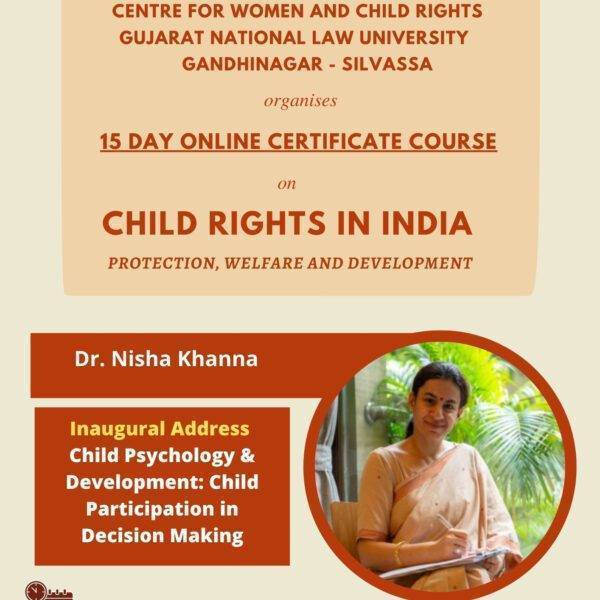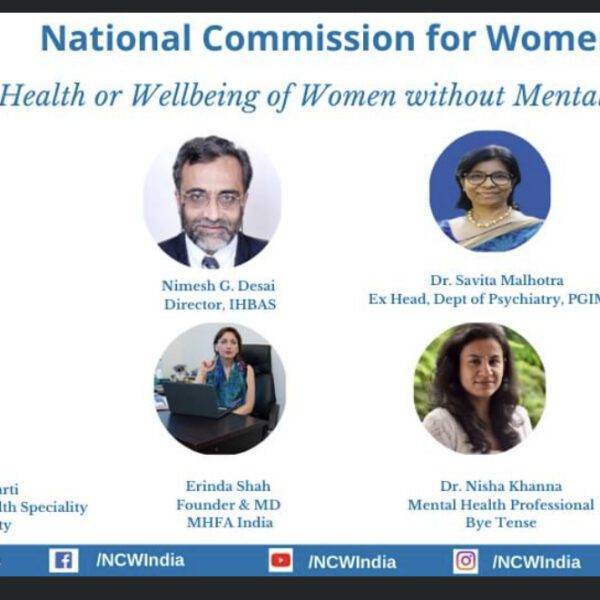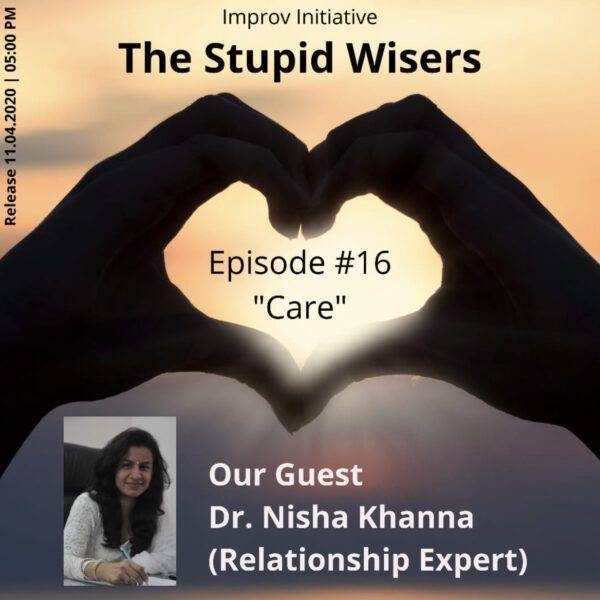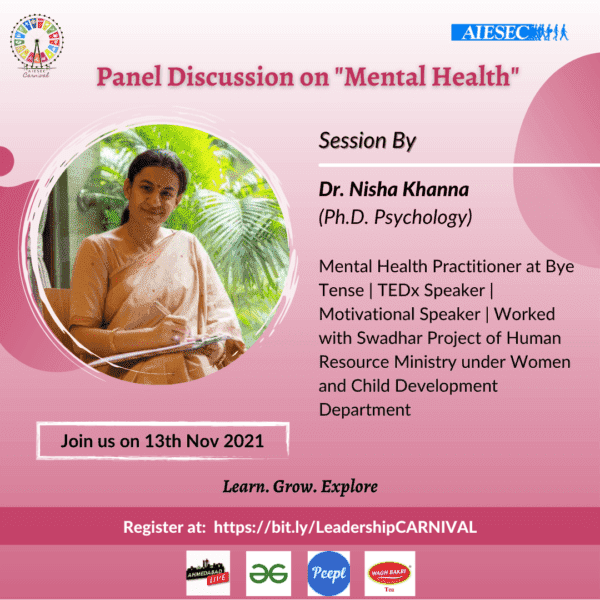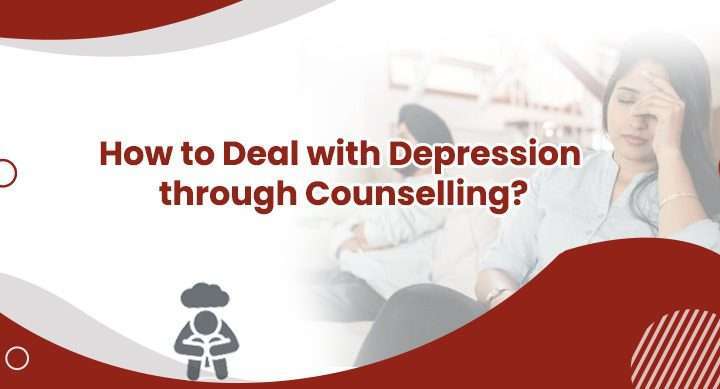
Dr Nisha Khanna, a leading Best Depression Counsellor in Delhi NCR and India, shared some critical steps to deal with Depression through counselling. Dealing with Depression through counselling can be an effective way to address and manage the symptoms of Depression.
- Seeking Professional Help: The first step is to reach out to a qualified mental health professional, such as a Psychologist or psychiatrist. They have the expertise to assess mental health, make clinical diagnoses, and recommend suitable treatment plans.
- Establishing Rapport: Building a solid therapeutic relationship with a Psychologist is crucial for effective treatment. People feel comfortable sharing their experiences and emotions, knowing they are in a safe, respectful, trustworthy, non-judgmental space and having open communication.
- Comprehensive Assessment: Psychologists conduct a thorough assessment to understand Depression or other concerns better. They explore various aspects of a person’s life, including personal history, relationships, lifestyle, and any traumatic experiences that may have contributed to Depression or other illnesses.
- Identifying Goals: With a Psychologist, a person establishes realistic goals for therapy. These goals are primarily SMART. For example, they reduce depressive symptoms through coping mechanisms and enhance holistic growth.
- Cognitive-Behavioural Therapy (CBT): The main focus of CBT is cognitive restructuring, challenging belief systems and behaviours contributing to depressive symptoms. People learn to challenge negative beliefs, develop healthier thinking patterns, and adopt positive coping strategies through counselling.
- Interpersonal Therapy (IPT): IPT is another practical approach for treating Depression. It focuses on improving relationships and social interactions, which can significantly affect emotional well-being. Psychologists help to identify and address interpersonal conflicts, improve communication skills, and build a supportive network.
- Supportive Counselling: Aside from specific therapeutic approaches, Psychologists provide supportive counselling. Counselling involves offering empathy, understanding, and validation of experiences. It can be conducive during emotional distress or when someone needs a safe space to express feelings.
- Medication Evaluation: While counselling alone can be effective, medicine recommendations in conjunction with therapy can sometimes be helpful for patients. Psychologists work closely with a psychiatrist or medical professional to evaluate the need for medication and make appropriate referrals if necessary.
- Self-Care and Lifestyle Changes: Counseling can also help to develop self-care strategies and positive lifestyle changes supporting mental health. It includes improving sleep patterns, regular exercise, adopting a healthy diet, practising relaxation techniques, and incorporating activities to enjoy into the routine.
- Regular Attendance and Commitment: Consistency and commitment to counselling are essential for achieving positive outcomes. Attend therapy sessions regularly, actively engage in the therapeutic process, and communicate openly with the Psychologist about progress, challenges, and any adjustments needed in the treatment plan.
Depression Counselling is a time taking process. Each person’s experience with Depression is unique, so finding a counselling approach and therapist that resonates with you is crucial. With professional support, a solid commitment to self-care, and the willingness to explore and address underlying issues, you can effectively manage Depression and work towards a healthier and happier life.
Why should people not hesitate to ask for help with Depression?
Mental health stigma related to Depression prevents people from seeking help. This article explores why individuals should not hesitate to ask for help when facing Depression. By highlighting the benefits of seeking support, individuals can reach out for assistance.
I. Understanding Depression
————————————-
Depression is more than just feeling sad or experiencing temporary low moods. Clinical Depression is a complex mental health condition with persistent symptoms for more than 14-21 days, like sadness, change in sleep and appetite, lack of interest, low energy levels, and a lack of concentration, which impact an individual’s daily routine, relationships, and overall quality of life.
II. The Consequences of Not Seeking Help
————————————-
Failing to seek help for Depression can have severe consequences. Firstly, untreated Depression often worsens, leading to increased emotional distress and potential complications such as anxiety disorders, substance abuse, and suicidal thoughts. Secondly, the social and occupational functioning of individuals with untreated Depression tends to deteriorate, affecting their work or school performance and personal relationships.
III. Breaking the Stigma
————————————-
The stigma around Depression, society’s misconceptions and negative attitudes contribute to shame, embarrassment, and fear of judgment. However, it is crucial to challenge and break down this stigma to create an environment that encourages seeking support. Education, public awareness campaigns, and promoting open conversations about mental health can help dismantle the stigma associated with Depression.
IV. The Benefits of Seeking Help
————————————-
1. Professional Guidance and Expertise: Mental Health Professionals, such as Therapists, Psychologists and Counsellors, are trained to diagnose and treat Depression. Seeking their help provides access to evidence-based therapies and treatment options tailored to an individual’s needs and a safe space to express thoughts and feelings openly.
2. Validation and Empathy: Talking to someone who understands and empathizes with the challenges of Depression can be immensely validating. Support from friends, family, or support groups allows individuals to feel heard, acknowledged and understood. They are reducing isolation and loneliness feelings often associated with Depression.
3. Improved Coping Strategies: Mental health professionals can teach individuals practical coping strategies to manage depressive symptoms effectively. If necessary, numerous techniques patients learn to deal with Depression, like Relaxation Techniques, Stress Management, Cognitive-Behavioural Therapy, and Medication. Learning these skills empowers individuals to participate in their recovery and resilience actively.
4. Increased Self-Awareness: Seeking help for Depression promotes self-reflection and self-awareness. Through therapy, individuals gain insights into their emotions, thoughts, and behaviours, enabling them to identify triggers and develop healthier coping mechanisms.
5. Prevention of Relapse: Seeking help for Depression not only aids in recovery but also helps prevent relapses. Mental health professionals provide ongoing support, monitor progress, and identify potential triggers or warning signs of deterioration. Individuals can develop strategies to manage future challenges and maintain their mental well-being with their guidance.
Conclusion
————————————-
In conclusion, seeking help for Depression is crucial for one’s well-being. By breaking the barriers of stigma, individuals can benefit from professional guidance, validation, improved coping strategies, increased self-awareness, and relapse prevention. It is essential to foster a culture of acceptance, understanding, and empathy surrounding mental health and encouraging open conversations. Dr Nisha Khanna is a leading Psychologist in Delhi NCR and India. Kindly Call us to book an online or offline appointment at +91-9818211474
Select the Best Option For You
“Choose Self, Not Suffering”– Dr Nisha Khanna(PhD)
Individual Counselling
- 60 Minutes
- Stress Management
- Depression Counselling
- Anxiety Treatment
- Suicidal Thoughts
- Self Mutilation
- Behavioural Problems
- Emotional Problems
- CBT
- DBT
- REBT
Couple Counselling
- 60 Minutes
- Individual Counselling
- Pre-Marital Counselling
- Post-Marriage Counselling
- Emotional Intimacy
- Physical Intimacy
- Extra Marital/Infidelity
- Systematic Approach
- Solution Focused
- Structural Approach
- Psycho Dynamic Approach
Online Counselling
- 60 Minutes
- Person/Couple/Family
- Relationship Counselling
- Marriage Counselling
- Family Counselling
- Parent Child Relationship
- Abusive Relationship
- Compatibility Testing
- EQ Testing
- Indirect Approach
- Direct Approach

